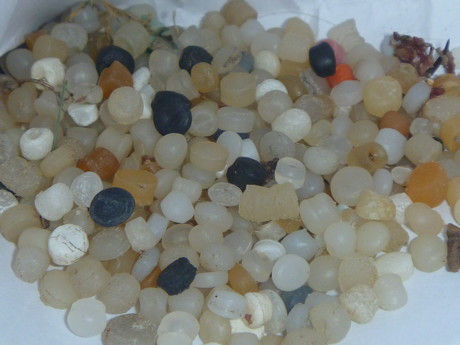Operation Clean Sweep to properly manage our plastic pellets

Operation Clean Sweep, originally developed in the US to reduce pellet loss in the plastics industry, has launched in Australia.
Used in the manufacture of plastic products, plastic resin pellets are the raw form of plastic, ranging in size from 2–6 mm and normally found in an opaque or off-white colour. The pellets are unintentionally released to the environment during production and transportation, where they can be easily transported through the stormwater system into our oceans — and accidentally ingested by marine life and sea birds.
Tangaroa Blue Foundation, with the support of the Victorian Government’s Litter Hotspots Program, has engaged with the plastics industry to bring a program to Australia that assists the plastics industry in reaching zero pellet loss from its companies. That program is Operation Clean Sweep, initially created by the US Society of the Plastics Industry (now known as the Plastics Industry Association) in 1992, which has so far been adopted by 22 jurisdictions around the world.
The program’s message is simple: resin pellets should be contained, reclaimed and/or disposed of properly. Now, with the assistance of Australia’s Plastics and Chemicals Industries Association (PACIA), the program resources have been modified to align with the Australian industry, terminology and equipment.
Through www.opcleansweep.org.au, companies can download the Operation Clean Sweep manual and a series of modifiable checklists to implement the program. They can also ‘take the pledge’ to adopt the program and be listed on the partners page showcasing their commitment to reducing pellet loss and protecting their environment.
Victorians to win through CDS Vic
Victoria's Container Deposit Scheme is offering five recyclers a $10,000 cash prize for...
NZ plastics industry targets hard-to-recycle waste streams
Plastics New Zealand has released two reports outlining strategies for addressing the...
Senate inquiry sees strong future for tyre recycling
Tyre Stewardship Australia has welcomed the findings in the 'No Time to Waste'...








